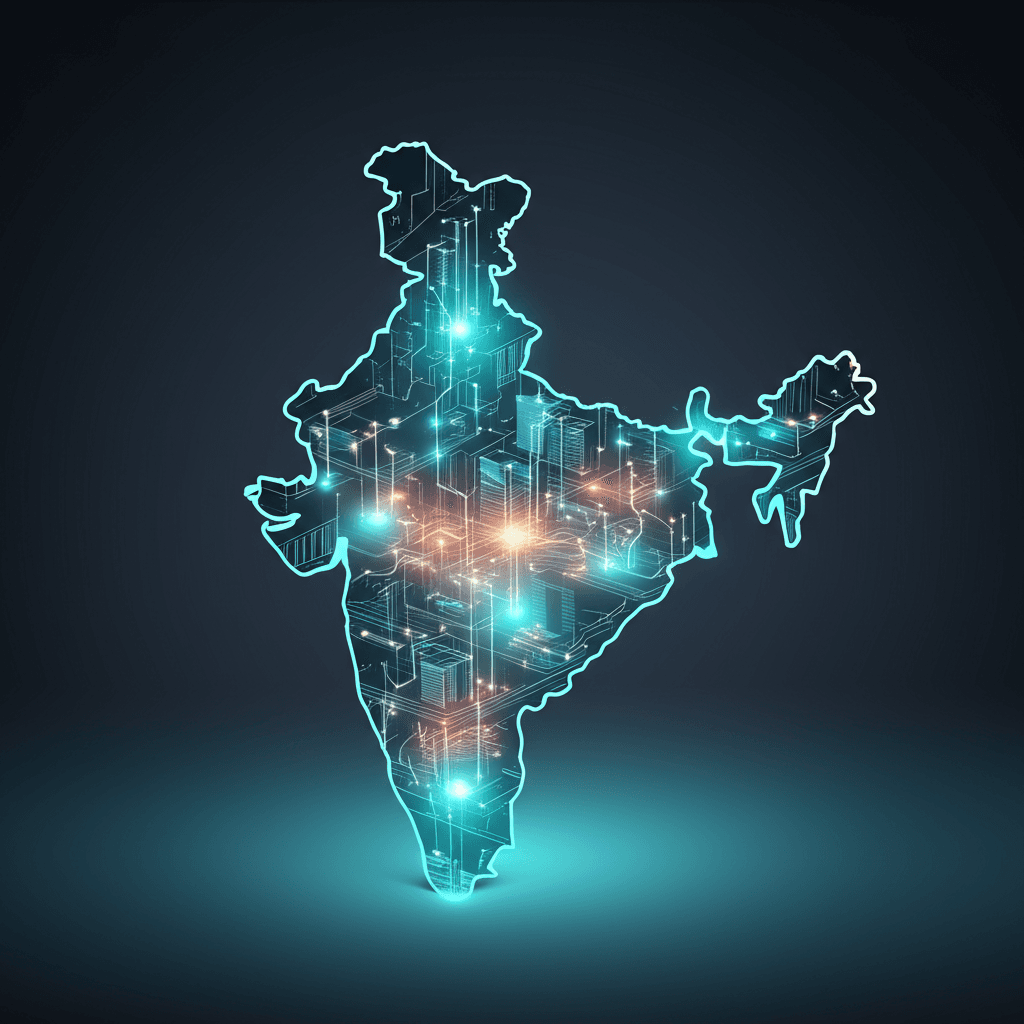India Secures AI Future: TCS, C-DAC Develop Sovereign Cloud
India's tech powerhouses unite to create a sovereign cloud, guaranteeing data localization and igniting the nation's AI potential.
July 8, 2025

In a significant move to bolster India's technological sovereignty, Tata Consultancy Services (TCS), the nation's largest IT services company, has joined forces with the Centre for Development of Advanced Computing (C-DAC) to develop indigenous cloud platforms.[1] This collaboration, formalized through a Memorandum of Understanding (MoU) at the Tec-Verse 2025 summit in New Delhi, marks a strategic convergence of public-sector research and private-sector scale to address the country's growing demand for secure and localized digital infrastructure.[1][2] The partnership aims to create a robust, home-grown alternative to foreign-owned cloud services, ensuring that Indian data remains within the nation's borders and strengthening the foundations for an AI-powered future.[1][3] This initiative aligns with the government's broader push for "Aatmanirbhar Bharat" (self-reliant India) in the technology sector and is poised to have far-reaching implications for data security, digital governance, and the domestic AI industry.
At the core of this collaboration is the goal of achieving "data sovereignty," a principle that has become increasingly critical in an era of global data flows and geopolitical uncertainties. Officials have emphasized that with current cloud services, there is no guarantee that data will reside within the country.[1] This partnership directly addresses that concern by ensuring that the servers, systems, and data centers are all located within India, aiming for 100 percent data localization.[1] The initiative leverages C-DAC's extensive experience in indigenous research and development with TCS's proven expertise in building and managing large-scale digital platforms for both public and private sector clients.[1][4] This synergy is expected to produce cloud solutions specifically tailored to India's unique digital requirements, including those of government bodies, public sector enterprises, and regulated industries, while ensuring compliance with regulations like the Digital Personal Data Protection Act of 2023.[1][5][4]
The development of a sovereign cloud is not merely a matter of data residency but also a strategic imperative for national security and economic stability. By reducing dependency on foreign technology providers, India aims to mitigate risks associated with international data policies and potential disruptions.[4] The collaboration builds upon earlier efforts by both organizations. C-DAC, an R&D organization under the Ministry of Electronics and Information Technology (MeitY), has a long history of developing supercomputers and other advanced computing technologies.[6][7] TCS, for its part, recently launched its own AI-enabled TCS SovereignSecure Cloud platform, which is designed to be fully developed, managed, and operated within India, utilizing its data centers in Mumbai and Hyderabad.[3][5][4] This partnership will likely see the integration of C-DAC's research prowess into platforms like SovereignSecure, which is built on an open-stack architecture to minimize reliance on foreign software.[4] The ultimate vision is a comprehensive, indigenous cloud ecosystem that not only secures national data but also fosters innovation across various sectors.
The implications for India's burgeoning AI industry are profound. A secure, scalable, and sovereign cloud infrastructure is a fundamental prerequisite for the development and deployment of advanced AI applications. The availability of indigenous, AI-capable cloud platforms has been cited as a major gap holding back digital transformation in the public sector.[8] This TCS-C-DAC partnership directly tackles this issue by providing a platform with integrated AI capabilities, including on-demand access to GPU resources necessary for training and inference of complex AI models.[4] This will empower Indian enterprises and startups to build and scale AI-first applications, unifying fragmented systems and simplifying complex IT landscapes.[5] The collaboration also extends beyond cloud computing, with officials indicating a future focus on quantum computing, AI/ML research, and the development of indigenous microprocessors, signaling a long-term vision for comprehensive technological self-reliance.[1]
In conclusion, the alliance between TCS and C-DAC represents a pivotal moment in India's journey toward digital independence. By pooling their respective strengths, the two organizations are set to build a secure and sovereign cloud infrastructure that will serve as the bedrock for the nation's digital future. This initiative promises to not only safeguard sensitive national data but also to act as a powerful catalyst for the domestic AI industry, enabling widespread innovation and enhancing India's position as a global technology leader. The focus on localizing hardware components in the future further underscores the comprehensive approach being taken to create a truly self-sufficient technology ecosystem.[3] This strategic partnership is more than just a business agreement; it is a foundational step in building a resilient, secure, and technologically advanced India for generations to come.